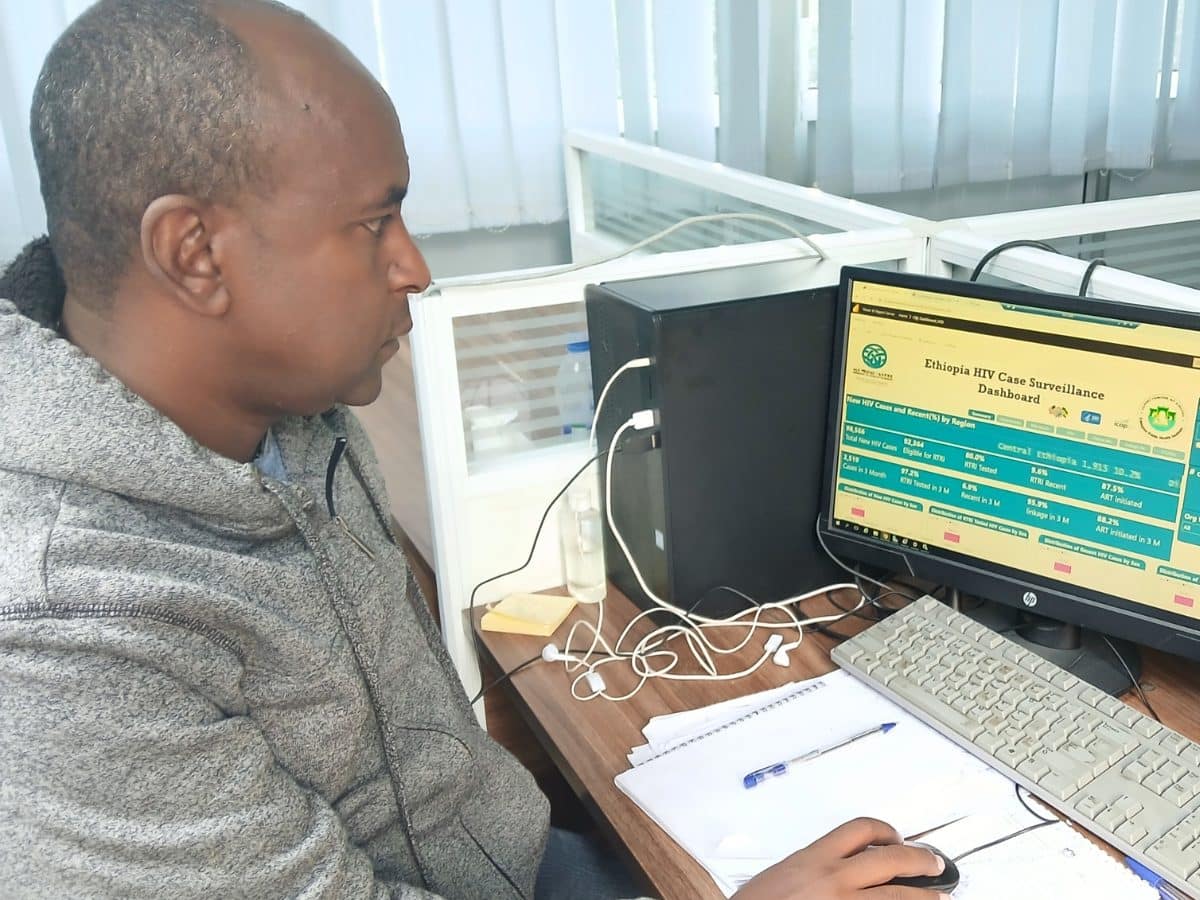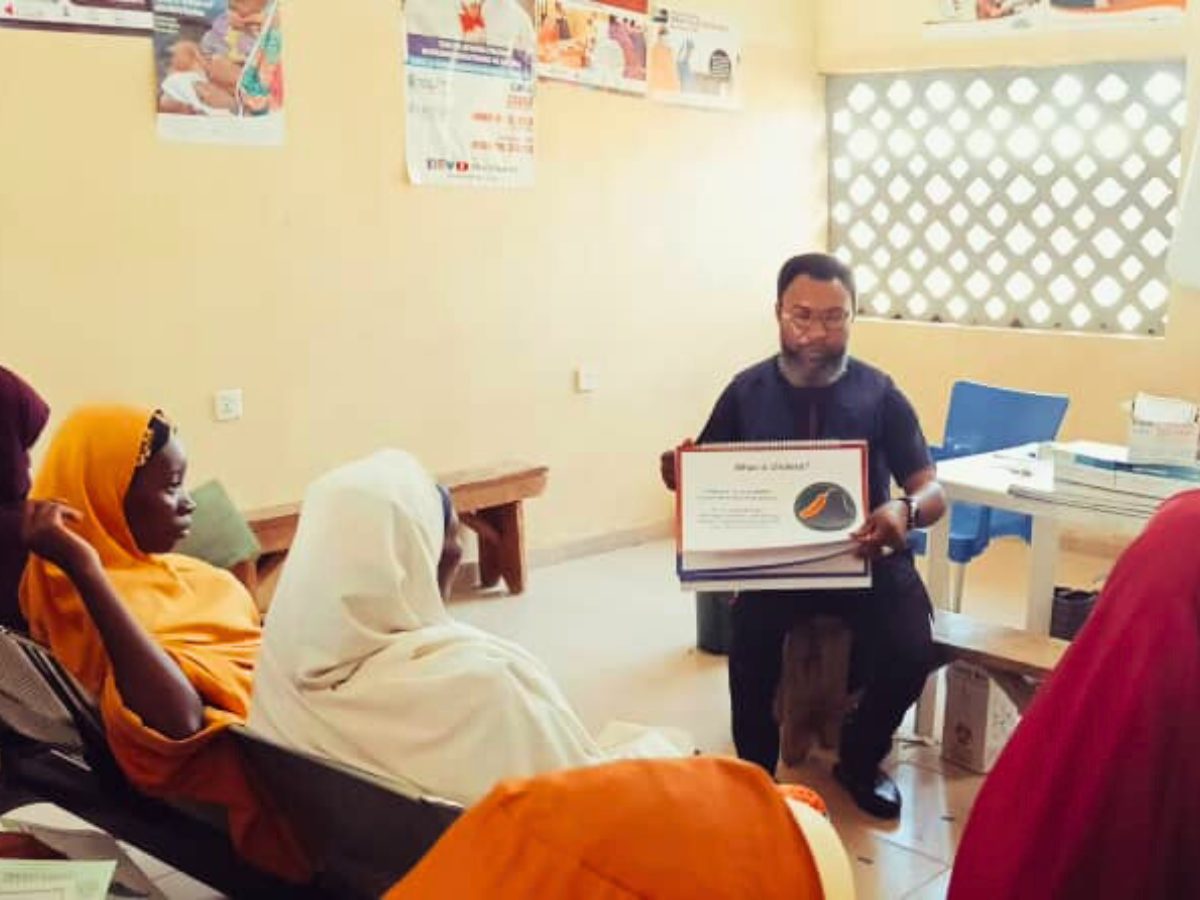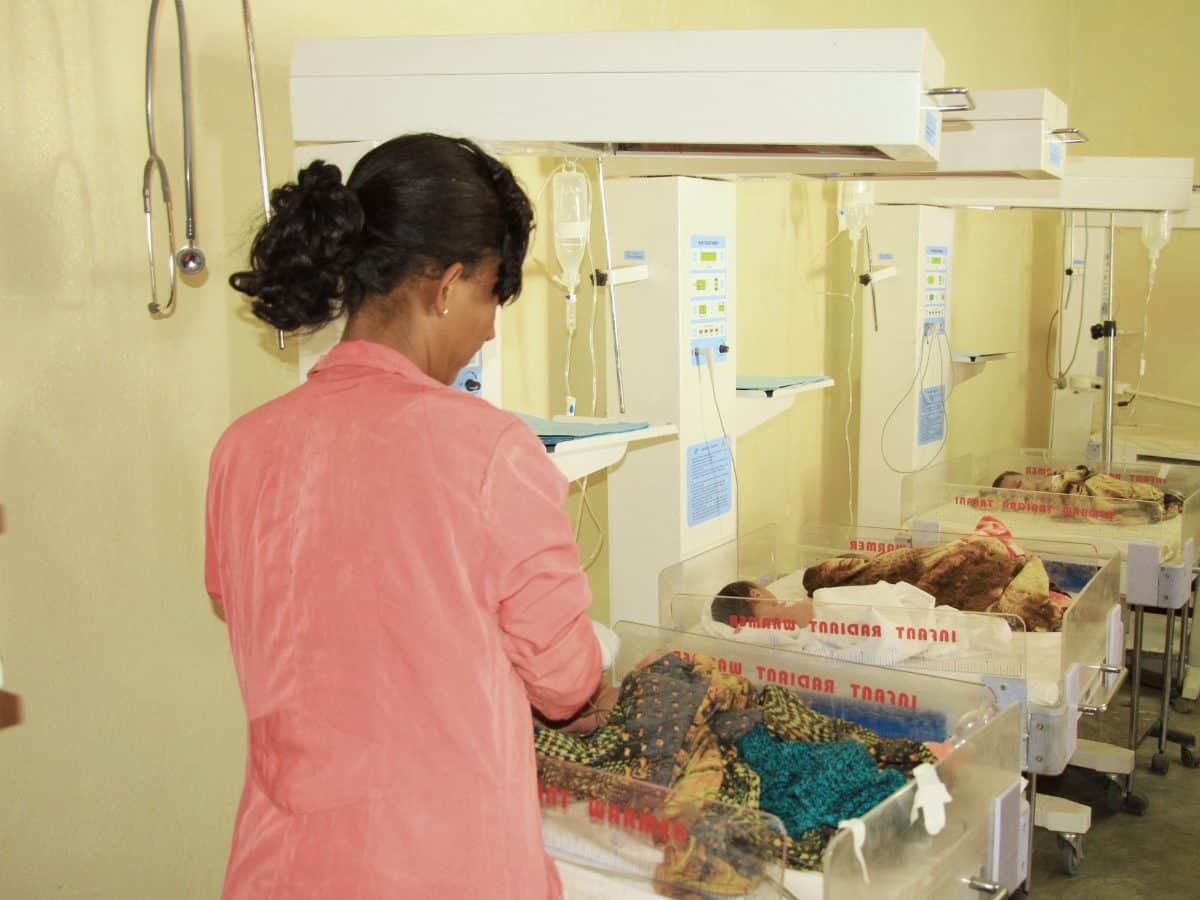ICAP in Ethiopia is transforming how data is being used to inform HIV programming.
Prior to 2019, Ethiopia lacked the necessary digital infrastructure to collect, manage, and analyze HIV surveillance data. This hindered the country’s ability to monitor any changes related to the HIV epidemic, including tracking new HIV cases, identifying high-risk populations, and evaluating intervention strategies.
With support from the U.S. President’s Emergency Plan for AIDS Relief (PEPFAR) through the Centers for Disease Control and Prevention (CDC), ICAP led the development and customization of a digital HIV case surveillance system implemented in more than 800 health facilities, enabling data-driven decision-making, targeted interventions, and improved health outcomes.
Prior to the development of the program, ICAP, CDC, and other stakeholders conducted a comprehensive needs assessment to identify gaps and challenges in HIV surveillance data collection and management. The largest gap was that health facility data was not disaggregated by population characteristics, limiting the ability to identify high-risk populations and target interventions in a timely manner.
The HIV case surveillance program records, manages, and analyzes real-time HIV surveillance data, allowing health facilities, the Ministry of health, and other stakeholders to conduct HIV risk analysis based on socio-demographic factors, such as gender, age, and occupation. The system also tracks and identifies areas where there are the greatest number of new HIV infections, helping teams target programming. Furthermore, the program reports on patient risk factors and utilization of services, such as linkage to care and antiretroviral therapy (ART) initiation, including timing. The dashboard flags health facilities with sub-optimal performance so that support can be targeted.
“ICAP has been instrumental in establishing a robust HIV case surveillance system in Ethiopia,” said Gemechu Tadesse, director of the HIV/TB Research Directorate at the Ethiopian Public Health Institute. “Its technical support, particularly in installing the REDCap server [server associated with the platform] on our premises is essential for virtually managing a huge set of centrally aggregated HIV case surveillance data collected from 800 sites across the country.”
“The dashboard allows program managers and policymakers to gain insights into trends and patterns of new HIV diagnoses, identify high-risk populations, and observe clinical features at the time of diagnosis, such as CD4 count and World Health Organization-based clinical stages,” said Tekalign Deressa, HIV case surveillance team lead for ICAP in Ethiopia.
In addition to developing the surveillance platform, ICAP provided essential infrastructure support to all health facilities implementing the program, including donation of servers, computers, 3G dongles – plug-in devices that enable Internet connection – and high-capacity automatic backup generators. ICAP provided intensive training for data encoders, managers, and system administrators, enhancing their skills and proficiency in data entry, quality assurance, and adherence to data security protocols. Health care providers were trained on the system’s data visualization dashboard.
“The dashboard has enabled us to generate real-time data and identify hotspots of potential ongoing HIV transmission and highlight geographic areas with unmet needs in HIV testing, treatment, and prevention services,” said Ashenafi Birhanu, HIV case provider at the ART Center in Zewditu Memorial Hospital.
Since its inception, the platform has contributed to reduced new HIV infections among certain populations, such as long-distance drivers; improvement in linkage to care and initiation of ART over time; and the use of HIV surveillance data, providing crucial local context for advocacy and HIV prevention and control efforts.
“The case surveillance data is not merely data,” said Fekadu Yadet, lead executive officer at the HIV/AIDS Prevention and Control Office within the Ministry of Health. “It is a granular-level map, pinpointing hotspots, vulnerabilities, and untold stories across different regions of the country. We are utilizing the data for targeting interventions, allocating resources, and raising public awareness.”
“The case surveillance data, disaggregated by age, sex, marital status, profession, and various risk factors, provides valuable insights for the Ministry of Health and other stakeholders to design and strategize targeted interventions for high-risk populations,” added Zenebe Melaku, MD, country director of ICAP in Ethiopia. “ICAP remains committed to implementing and expanding the HIV case surveillance project, driving tailored program improvements and achieving maximum impact in the national response to HIV/AIDS.”
About ICAP
A major global health organization that has been improving public health in countries around the world for two decades, ICAP works to transform the health of populations through innovation, science, and global collaboration. Based at Columbia Mailman School of Public Health, ICAP has projects in more than 40 countries, working side-by-side with ministries of health and local governmental, non-governmental, academic, and community partners to confront some of the world’s greatest health challenges. Through evidence-informed programs, meaningful research, tailored technical assistance, effective training and education programs, and rigorous surveillance to measure and evaluate the impact of public health interventions, ICAP aims to realize a global vision of healthy people, empowered communities, and thriving societies. Online at icap.columbia.edu








